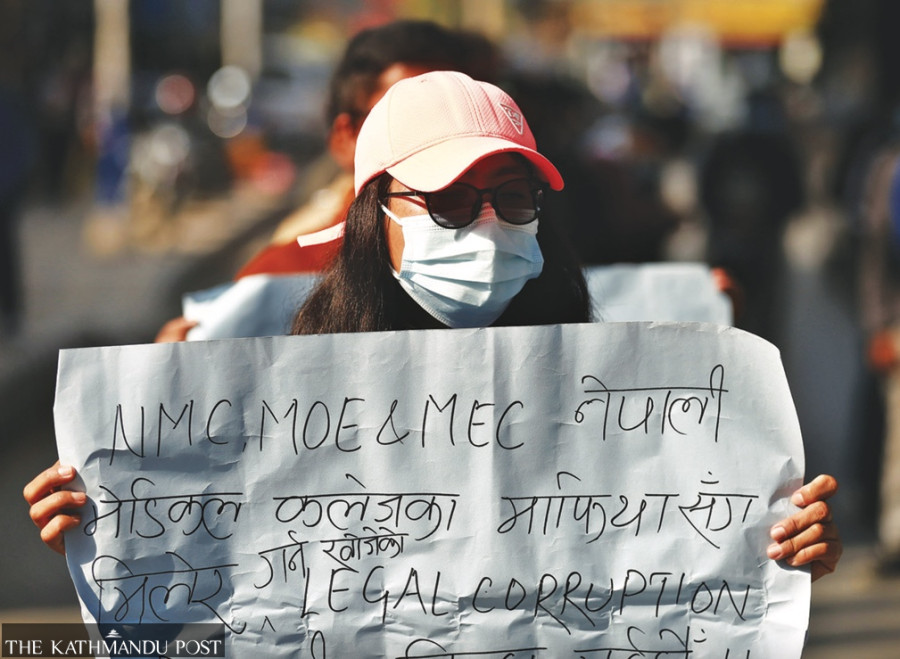Editorial
Staring into the void
Medical students who completed their studies in China are in a bind as they can't intern in Nepal.
Of the many sectors severely hit by the pandemic, none suffered so much as the education sector. People pursuing higher education, in particular, require considerable involvement in sharpening their practical skills. In an unfortunate twist of fate, students pursuing medical studies at universities in China have had to bear the brunt of the policies adopted by the authorities, both in Nepal and China. The protracted effects of the pandemic causing the rules to make awkward choices have left the students staring into the void. And with each passing day, finding a middle ground has become an uphill task for them.
The medical students have been protesting to ensure that they are allowed to undertake internship programmes in Nepal, which would have taken place in China under normal circumstances. In July 2021, the Medical Education Commission ceding to the demands of the protesting students, took steps to allow those who had completed their MBBS by April 2020 to be eligible for internships in Nepal—lifting over a decade-old ban that prevented medical students from foreign universities to intern in Nepal.
However, the beneficiaries are only those who began their studies before 2015. While those who started their studies in 2016 completed the theoretical portion at the beginning of 2021 via online classes, they still need to undertake a year of internship to graduate as doctors. China, pursuing a hard stance to eliminate Covid-19, has taken steps to ban international students from entering its country. The Nepal government, citing actions taken by governments in neighbouring countries to maintain acceptable standards, has shown reluctance in granting internships. Between all this commotion, the students have become unsuspecting casualties, and each passing day is extending the problems outwards with no apparent solution in sight.
Is there a way out of this sticky situation? Apart from the issue of providing internships, the problem appears to be revolving primarily on whether the online classes could be counted towards completion of studies. When electronic learning has become the norm worldwide, the authorities can come up with a solution to break the impasse. After all, what is the reason that is stopping the authorities from providing internships to eligible candidates who are set to complete or have just completed part of their studies (theoretical studies) online? There is however the issue of completing practical classes which usually go hand in hand with theoretical classes under normal circumstances.
The latest press release issued by the Ministry of Education, Science and Technology stresses the need to raise the issue at the governmental level using diplomatic channels to ensure they complete their studies and mentions no other ways to resolve the issue. There is still a shortage of qualified professionals, especially in the remote corners of Nepal. Would it be possible to find common ground to allow students to practise at home rather than awaiting approval from third countries? And it is well known that diplomatic procedures cannot be counted on to provide a speedy resolution to tricky issues. Whatever steps are needed, they need to be carried out promptly because it involves the future of those who have everything to offer to society when it matters the most.




 8.43°C Kathmandu
8.43°C Kathmandu














